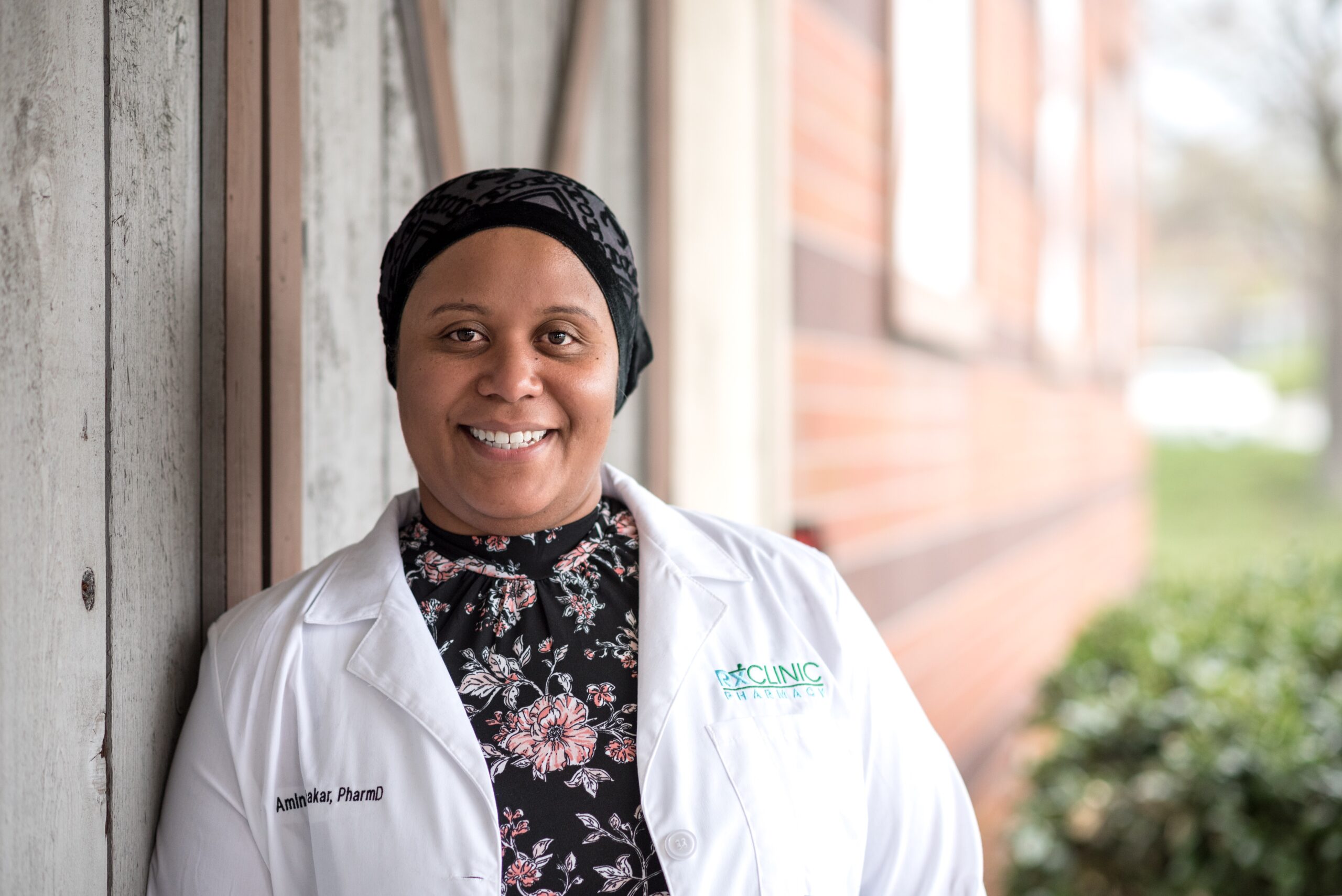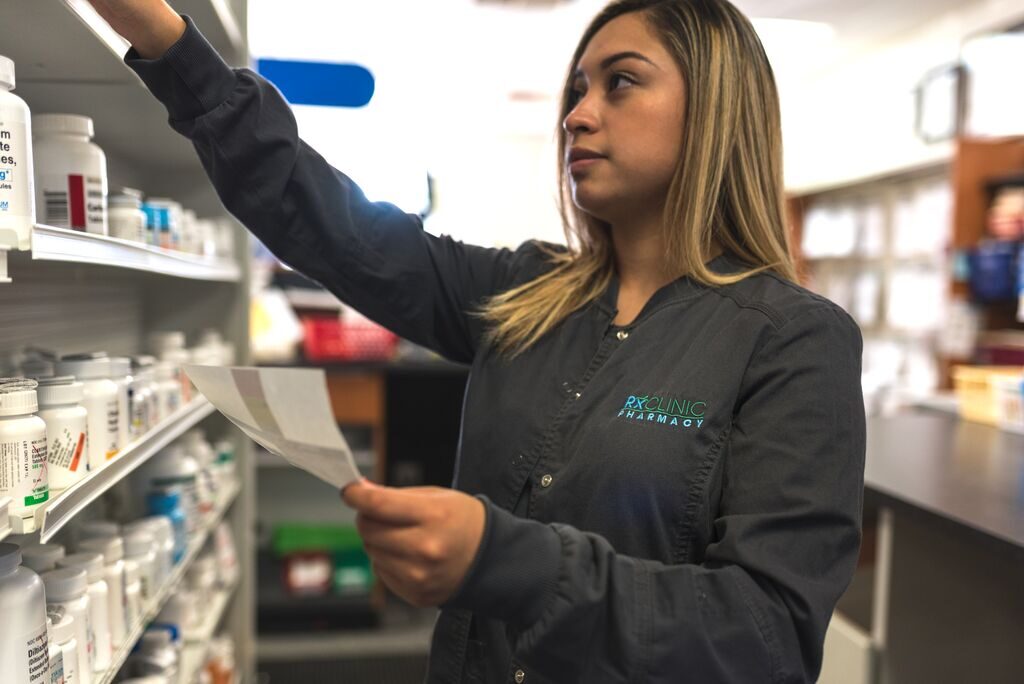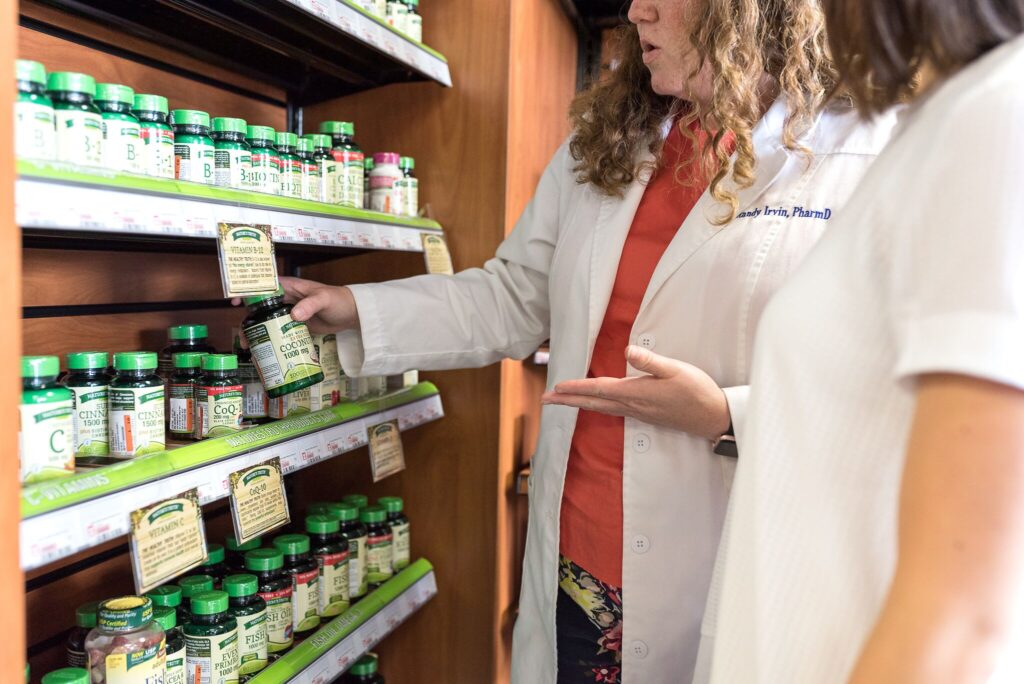
Nestled in the Independence Square shopping center is a Black-owned pharmacy that doles out more than pills and bandages. Rx Clinic Pharmacy dispenses time.
In today’s world of drive-thru medical care, Rx Clinic, owned by Kenyan-born Amina Abubakar is a throwback to an era when doctors and pharmacists knew their patients. Her pharmacy serves as a clinic–filling prescriptions, calling patients and doctors, and providing one-on-one attention.
“[The medical industry] has marketed and convinced consumers that faster is better,” she said. “Medicine can heal, medicine can kill.”
Growing up in Kenya, Abubakar saw AIDS ravage people with poor health care. She came to the U.S. thinking it would be different here, but Abubakar saw that low-income Americans had similar challenges as people in Kenya.
“I thought there were no problems here. I never knew there were communities who had no access to food or to health care,” she said. “It was eye opening.”
Abubakar started her pharmacy career at a chain pharmacy but quickly realized that it was not a good fit for her. Basically, she took too long to get customers out of the door.
Many of her senior customers didn’t understand what medicines they were taking and why. They often referred to their prescriptions by the color of the pills, she said. Often patients were still taking medicines that they no longer needed. In America, about $150 billion is spent annually for problems caused by medications, she said.
Abubakar decided to open her own pharmacy so she could give customers more personalized care. Since opening in 2009, Abubakar has added two additional locations and grown to 45 employees.
Client Richard Mills, 65, met Abubakar when she opened her first location 10 years ago. She did a presentation at his apartment complex about diabetes and HIV. She talked in terms that were easy to understand when she explained how medicines could interact, he said.
She was caring and personable, so Mills gave her a try. He’s been a loyal customer ever since, he said.
“They embrace you like you’re a member of the family,” he said. “They make sure I have everything I need.”
Two Rx Clinic locations are in Amity Medical Group locations. Co-founder and director of HIV medicine at Amity Medical Group, Wes Thompson made Rx Clinic his onsite pharmacy after patients talked about the care they received. Patients told him that they received monthly calls about their medicines. Patients told him about the conscientious way the staff treated them and the respect they received.
“It was more than just filling the prescriptions. This was a prescription for a person that mattered,” he said.
This pharmacist goes the extra mile for her customers. When Abubakar opened, she immediately added delivery because during follow ups with patients, she learned that many missed renewing prescriptions because they did not have transportation. We live in a busy society, she said, and sometimes Rx Clinic drivers are the only people their senior customers see. For people with difficulty reading, her team creates pillboxes with the images of the sun and moon to denote what time of day they should take the pills.
“The CVS’s of the world have a place. Fast and convenient,” she said. “We want to cater to those who need us as advocates. We are going to take the time to talk to you. We’re going to call you every month. We’re going to know your family. We’re going to know your pets. We’re going to know what’s going on.”
Her staff visits patients in the hospital, she said. She has contracts with primary care providers to provide remote monitoring between medical appointments.
Thompson said the monthly monitoring has created documentable improvements among his patients. They keep their appointments and lab visits, he said. There’s been a reduction in blood pressure, cholesterol and A1C levels. Her team gives medical providers feedback on how patients are faring with their prescriptions.
“It’s just this real collaborative approach,” Thompson said. “It really rounds out the holistic approach to medicine.”
In addition, Rx Clinic makes medicines to accommodate patients. For example, they can create a topical solution for someone who can’t swallow an oral medicine or treats for pets who won’t eat pills. Abubakar was part of a team that worked with the FDA during the Obama administration to develop genetic testing for drug therapy.
These days, Abubakar is most excited about being approved to use FDA technology to determine brain health. Her pharmacy is also nationally accredited to treat people with complex diseases such as multiple sclerosis and Crohn’s disease. Treating these types of patients, as well as those dealing with HIV, are special to Abubakar.
“You need a partner that’s on top of your game so you’re not alone,” she said. “Most of these patients are so sick they don’t have time to worry about their medicine.”
Her goal is to build community around healthcare. She’s doing it one phone call



